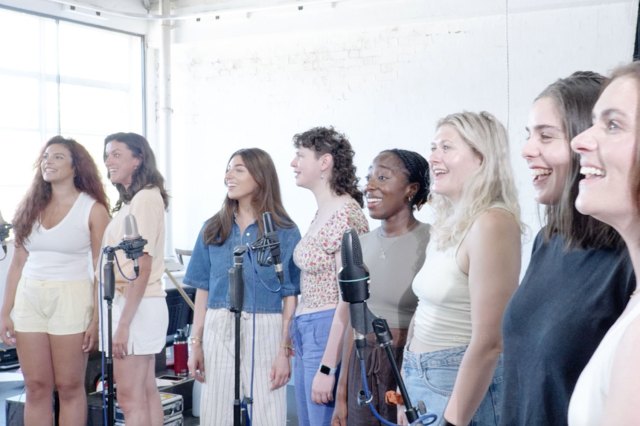Teeth ‘n’ Smiles (Sheffield)
Oh to have been there 25 years ago when Helen Mirren blasted into the
Royal Court with Teeth ‘n’ Smiles, especially at the performance, recalled by writer David Hare, when The Who’s drummer Keith Moon smashed his Rolls into the theatre, got out and wandered drunkenly on to the stage.
The play survives, but without the deep-gutted excitement it must have had
then. Now it’s an interesting piece of history firmly rooted in its time.
Back then, the clash between rock culture and the bourgeois was almost
tangible; so the image of the heavy rock band turning up to play at an
Oxbridge May Ball was a poignant one. Rockers truly believed they were the
proletarian revolution waiting to happen to Britain, a belief increasingly
victualled by booze and chemical cocktails.
But the class enemy wouldn’t
fight back: it either sought assimilation, like the dinner-jacketed reporter
from the student newspaper here (“I’m hoping to drop out, you know, when I
get my degree – I just want to groove!”), or, like the rest of the hoorays
who cancel the band’s third set, it got bored. By the time Hare’s play opens, all that destructivity has been deflected from society and turned upon itself.
Maggie the singer is umbilically
attached to her bottle of scotch and band member Peyote is off his face with
who-knows-what non-medicinal compound.
In a ball-breaker of a performance,
Amanda Donohoe‘s Maggie has become a parody of the rock monster. “The
singing’s easy,” she wails, “it’s the bits in between I can’t do.” But hers is
not a cry for help. “She doesn’t want to be loved,” one of the entourage
points out helpfully, “she wants to be flattened by a Sherman tank.” Indeed,
such is her nihilism that, when the band is busted by the cops halfway
through the evening, she, though technically innocent, makes no protest at
taking the rap – not beyond torching the marquee, anyway.
The only other person on stage sufficiently disciplined to make an
impression is Ivan Kaye as band manager Saraffian, the sort of Denmark
Street shark who would bring over a random quartet of African-Americans and
foist them on to the gullible British market as The Four Tops. Alas, his
performance crumbles shapelessly under the weight of his Act Two monologue
about an experience in the Cafe de Paris.
Director Anna Mackmin‘s attempt to morph conventional theatre and rock
concert is sporadically successful, though it’s doubtful if any band would
have played to such a formally conservative light show. Certainly no band’s
techie would have accepted the kind of poorly balanced sound that renders Tony
Bicat‘s lyrics – which one assumes are intended to supply some sort of
counterpoint – superfluous.
And Mackmin should be told that, with the
Crucible’s wraparound audience, having all your actors out on the perimeter
looking in is alienating: that’s the audience’s job.
– Ian Watson












